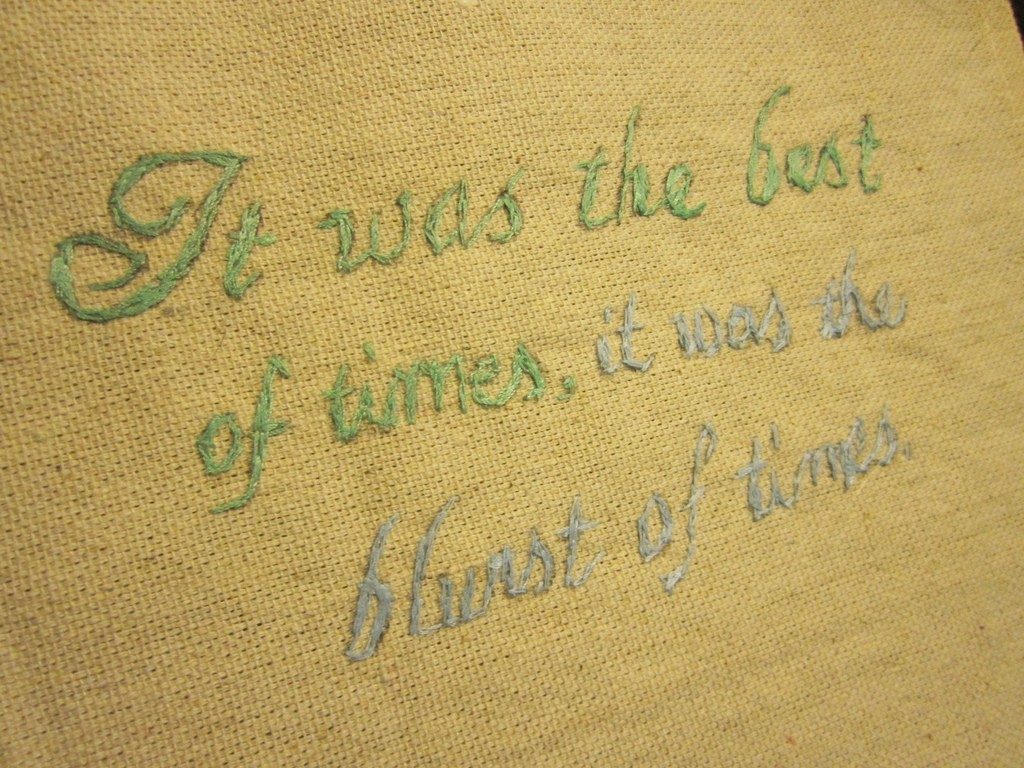Next week Media Evolution The Conference is taking place in Malmö. The Conference will focus on who the media industry’s future audiences are, the technology we communicate with and how we create and consume media. This is a first leg in a blog relay to put focus on some of the conference sessions. Tomorrow I’m handling the baton to Henriette Weber who will be writing around the session “New business opportunities with disruptive thinking”.
Short and sweet, just to remind us all of the awesomeness of online, and the possibilities of the now.
First, let’s consider the opening paragraph of A Tale of Two Cities by Charles Dickens (also known from Epic 2014)
It was the best of times, it was the worst of times, it was the age of wisdom, it was the age of foolishness, it was the epoch of belief, it was the epoch of incredulity, it was the season of Light, it was the season of Darkness, it was the spring of hope, it was the winter of despair, we had everything before us, we had nothing before us, we were all going direct to Heaven, we were all going direct the other way.
So true, right? We see it clearly today, with the western world cheering for the free and open Internet in MENA and around the world while at the same time demanding restrictions in our own backyard – no matter if it’s riots in London or the sharing of culture on pirate bay. I would be a fool not to admit that we face some rather unique and new problems today. When free speech is not theoretical but also involves a voice that can be heard – well, obviously a lot changes.
What I will never admit is that we should blame the problems on the Internet itself. It would be like blaming the letters and words themselves. I will never admit that we should change the fundamentals of what built this infrastructure in the first place. Internet is a huge success, one of the most prominent in history of man, and it is so because it started out free. Unrestricted. Ungoverned, except from a technological standpoint – but equal by that same force.
I understand that governments, companies and more than a few individuals feel threatened and troubled. But let’s not allow that to be the norm. Let’s not allow fear and control restrain what the internet may be. Read again the words from professor Lawrence Lessig as he introduces the book ”The future of ideas”
The forces that the original Internet threatened to transform are well on their way to transforming the Internet. Through changes in the architecture that defined the original network, as well as changes in the legal environment within which that network lives, the future that promised great freedom and innovation will not be ours. The future that threatened the reemergence of almost perfect control will.
In this I see the large scope and the reason to say ”Yes, and…” instead the current ”No!” – and that brings us to The Conference…
From what I’ve read I suspect there is a large element of saying ”No” in the talk of Susan Maushart, the author of ”The Winter of Our Disconnect: Boredom and Breakthrough”. It’s a story about disconnecting herself and her family for six months. It’s a story about saying no to digital. It makes me really curious, and I very much look forward to the session. From what I can tell it’s a story that glorifies the small family and the physical world as opposed to the global and digital space. But who’s to say they are mutually exclusive? And who’s to say one is more valuable than the other?
A Life without everyday gadgets from dantv on Vimeo.
We need to make sure that we leverage the possibilities of online, not limit ourselves by the notion of offline as superior. As an experiment it’s great, but I’m scared of how the results are played. In this troubled times I’m no fan of glorifying disconnect as a solution to anything.
I would much rather see us say yes to both worlds and let them build upon each other. We will soon realize that it’s about weaving the internet into our lives. Many of us are already there – as we move towards zero friction between man and machine. To quote William Gibson: ”The future is already here — it’s just not very evenly distributed”.
If we finally tear down the boundaries and let the offline and the online world blend at an individual level, then we will also see how we ought to say ”Yes, and…” in the larger perspective.
And it will be the best of times.


3 thoughts on “Why say no?”